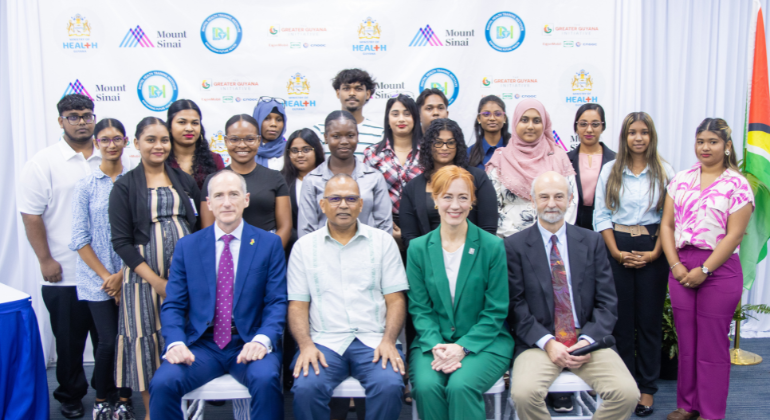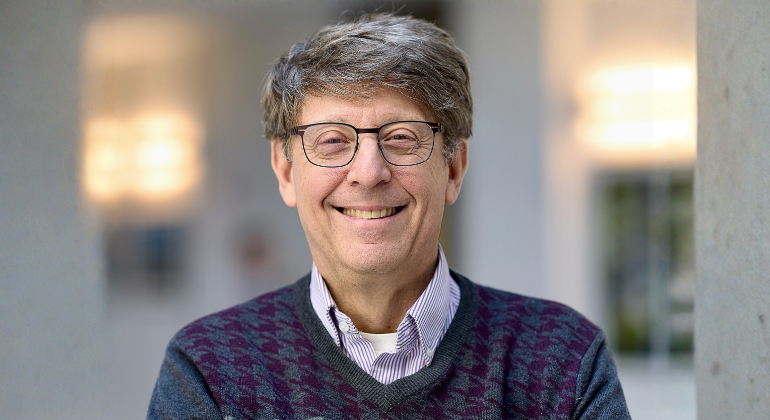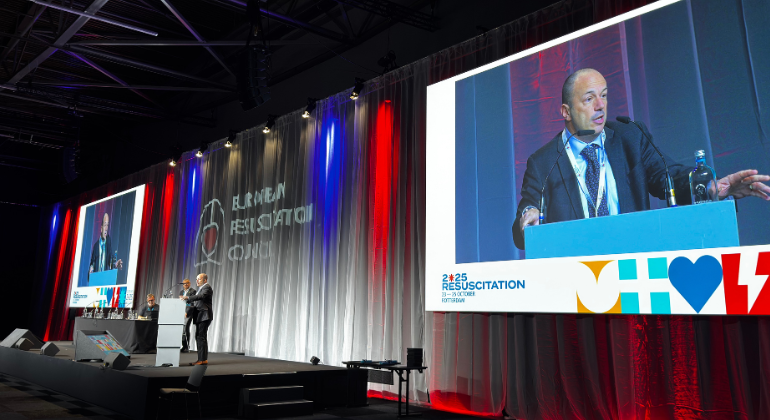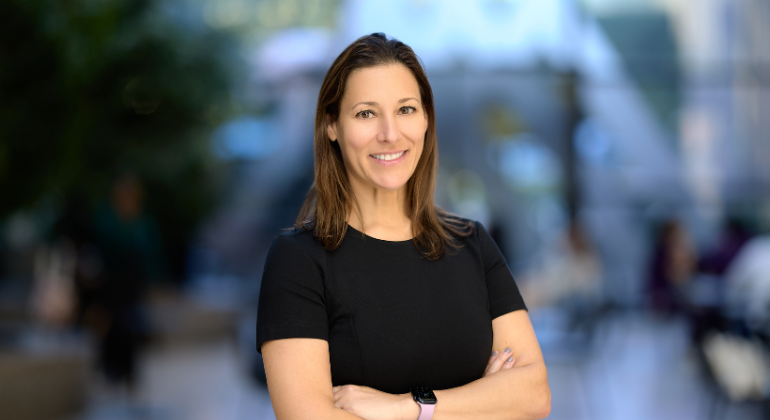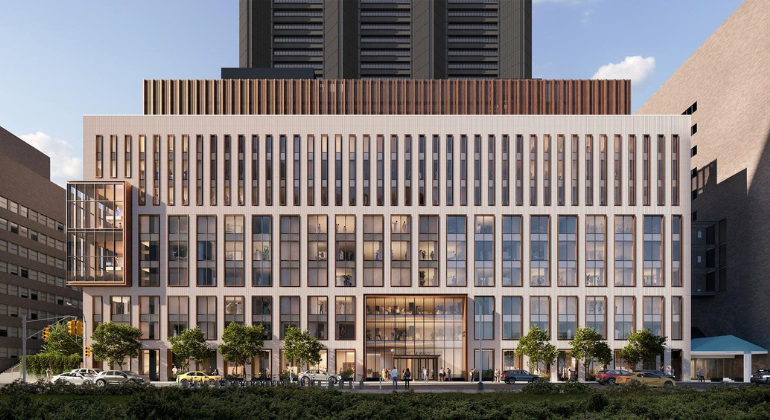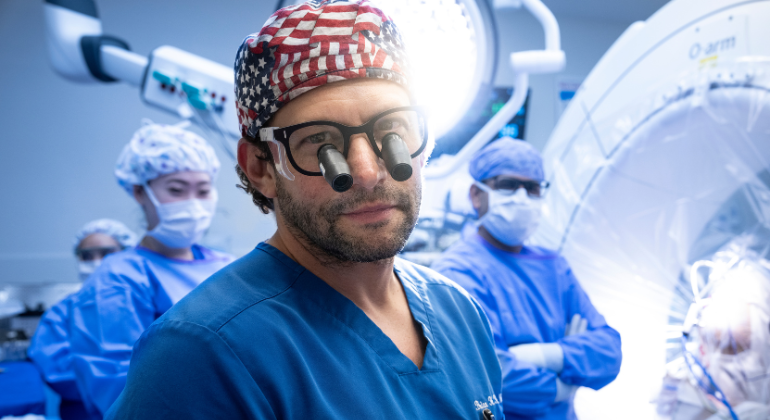Mount Sinai Care To Participate as a Medicare Shared Savings Program Accountable Care Organization
New care coordination program created to offer high quality service and care to beneficiaries through partnership with medicare.
Mount Sinai Care, LLC, today announced it has been selected to participate in the Medicare Shared Savings Program (Shared Savings Program) Accountable Care Organization (ACO), a multifaceted new program sponsored by the Centers for Medicare and Medicaid Services (CMS).
Through the Shared Savings Program, Mount Sinai Care will work with CMS to provide Medicare fee-for-service beneficiaries with high quality service and care, while reducing the growth in Medicare expenditures through enhanced care coordination. Approximately 26,000 Medicare beneficiaries in the New York metropolitan area will participate in Mount Sinai's ACO, which builds on a number of longstanding programs that have improved patient care and outcomes.
"In structuring our ACO, we examined every aspect of the care continuum and thought creatively about how we could deliver care in a more integrated fashion," said Mark Callahan, MD, CEO of Mount Sinai Care and Chief Medical Officer and Associate Dean for Excellence in Clinical Care at Mount Sinai School of Medicine. "Based on our extensive experience with highly targeted programs and pilots, we are sure that Mount Sinai Care will successfully reduce fragmentation and improve population health."
Mount Sinai is located between one of the most affluent and one of the most underserved communities in the United States. "The fault line between Manhattan's Upper East Side and East Harlem runs right through our main campus," said Kenneth L. Davis, MD, CEO and President of The Mount Sinai Medical Center. "It is our challenge—and our mission—to do something about the health care disparities that are all around us, and provide the best care possible for every patient who walks through our doors."
Within Mount Sinai's ACO, specially trained care coaches will work directly with patients to streamline and integrate their care across the clinical spectrum—from chronic disease management to specialty care and complex procedures, explained Dr. Callahan. "Coaches will expand existing telephone outreach and follow-up efforts, assist patients with electronic medical record portals, and make house calls to help individuals and families overcome barriers to health care access and adherence to treatment plans," he said, adding that they can also be involved with clinical visits as needed.
Mount Sinai already has a robust care coordination platform that spans a number of outpatient practices, inpatient hospital services, and post-acute care transition programs. Since 1995, the institution's Visiting Doctors Program—one of the largest in the nation—has brought high-quality medical care to the homes of people with complex and serious illness, and the East Harlem Health Outreach Partnership has provided free weekend medical care to the community at Mount Sinai Hospital. In response to the twin epidemics of obesity and diabetes in New York City, Mount Sinai developed the Diabetes and Cardiovascular Alliance to provide 1,200 patients with community-based care from endocrinologists, cardiologists, and certified diabetes educators.
More recently, Mount Sinai launched an innovative post-acute care program called Preventable Admissions Care Team that has resulted in a 55 percent reduction in emergency department visits, and a 45 percent reduction in hospital admissions, for a targeted group of high-risk patients. Early in 2012, Mount Sinai also established the first geriatrics emergency department, designed to meet the special needs of the region's growing elderly population in New York City. The EPIC electronic medical record system, already rolled out across inpatient and outpatient settings, is also a critical component for improved communication among members of a patient's care team, and between providers and patients.
"The ACO is an opportunity to integrate our innovative programs, pool resources for improved patient care, and develop new methods for streamlining payments and administrative processes," Dr. Callahan said. "Mount Sinai is renowned for its tradition of breakthrough medical research and groundbreaking therapeutic advancements. With the ACO, we will become exemplars for innovative health care delivery," he explained.
About The Mount Sinai Medical Center
The Mount Sinai Medical Center encompasses both The Mount Sinai Hospital and Mount Sinai School of Medicine. Established in 1968, Mount Sinai School of Medicine is one of the leading medical schools in the United States. The Medical School is noted for innovation in education, biomedical research, clinical care delivery, and local and global community service. It has more than 3,400 faculty in 32 departments and 14 research institutes, and ranks among the top 20 medical schools both in National Institutes of Health (NIH) funding and by U.S. News and World Report.
The Mount Sinai Hospital, founded in 1852, is a 1,171-bed tertiary- and quaternary-care teaching facility and one of the nation's oldest, largest and most-respected voluntary hospitals. In 2011, U.S. News and World Report ranked The Mount Sinai Hospital 16th on its elite Honor Roll of the nation's top hospitals based on reputation, safety, and other patient-care factors. Of the top 20 hospitals in the United States, Mount Sinai is one of 12 integrated academic medical centers whose medical school ranks among the top 20 in NIH funding and U.S. News and World Report and whose hospital is on the U.S. News and World Report Honor Roll. Nearly 60,000 people were treated at Mount Sinai as inpatients last year, and approximately 560,000 outpatient visits took place.
For more information, visit http://www.mountsinai.org/.
Find Mount Sinai on:
Facebook: http://www.facebook.com/mountsinainyc
Twitter @mountsinainyc
YouTube: http://www.youtube.com/mountsinainy
About the Mount Sinai Health System
Mount Sinai Health System is one of the largest academic medical systems in the New York metro area, with 48,000 employees working across seven hospitals, more than 400 outpatient practices, more than 600 research and clinical labs, a school of nursing, and a leading school of medicine and graduate education. Mount Sinai advances health for all people, everywhere, by taking on the most complex health care challenges of our time—discovering and applying new scientific learning and knowledge; developing safer, more effective treatments; educating the next generation of medical leaders and innovators; and supporting local communities by delivering high-quality care to all who need it.
Through the integration of its hospitals, labs, and schools, Mount Sinai offers comprehensive health care solutions from birth through geriatrics, leveraging innovative approaches such as artificial intelligence and informatics while keeping patients’ medical and emotional needs at the center of all treatment. The Health System includes approximately 9,000 primary and specialty care physicians and 10 free-standing joint-venture centers throughout the five boroughs of New York City, Westchester, Long Island, and Florida. Hospitals within the System are consistently ranked by Newsweek’s® “The World’s Best Smart Hospitals, Best in State Hospitals, World Best Hospitals and Best Specialty Hospitals” and by U.S. News & World Report's® “Best Hospitals” and “Best Children’s Hospitals.” The Mount Sinai Hospital is on the U.S. News & World Report® “Best Hospitals” Honor Roll for 2025-2026.
For more information, visit https://www.mountsinai.org or find Mount Sinai on Facebook, Instagram, LinkedIn, X, and YouTube.

Mount Sinai Health System to Roll Out Microsoft Dragon Copilot
Nov 05, 2025 View All Press Releases
NIH Awards $10 Million for the New York Regional Diabetes Research Center
Oct 23, 2025 View All Press Releases